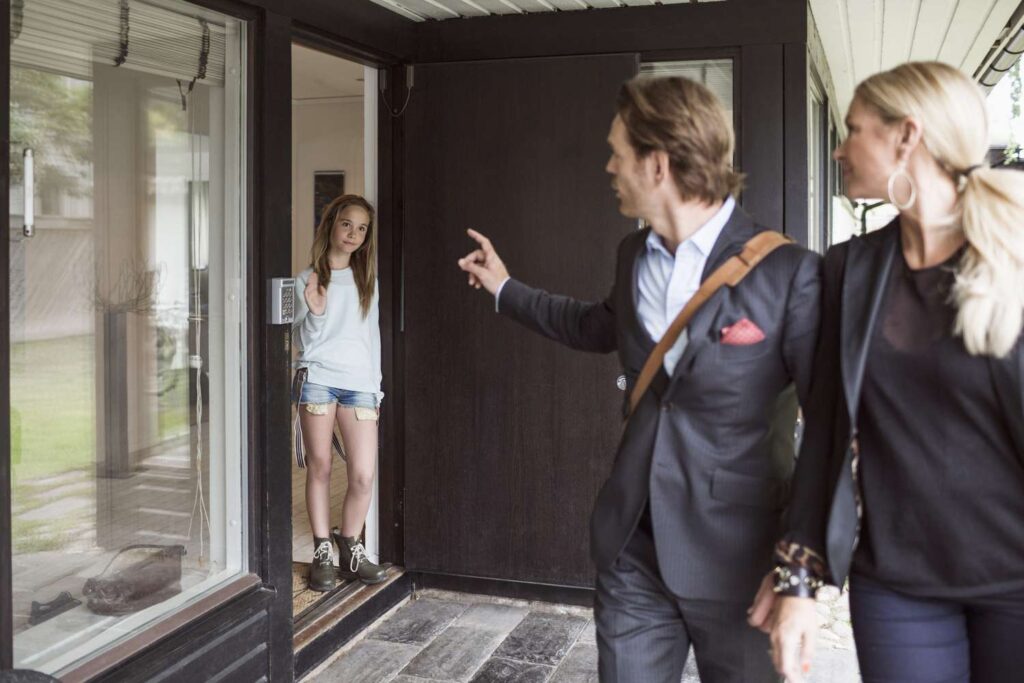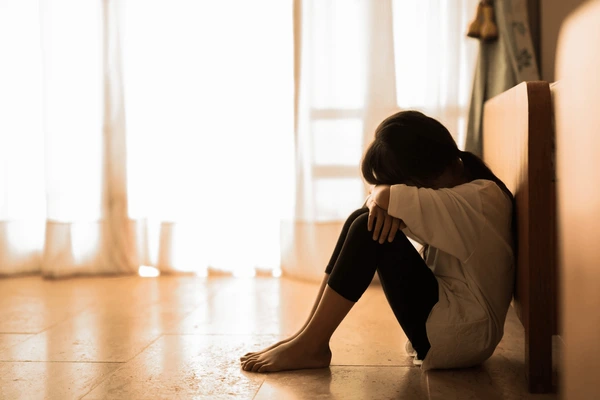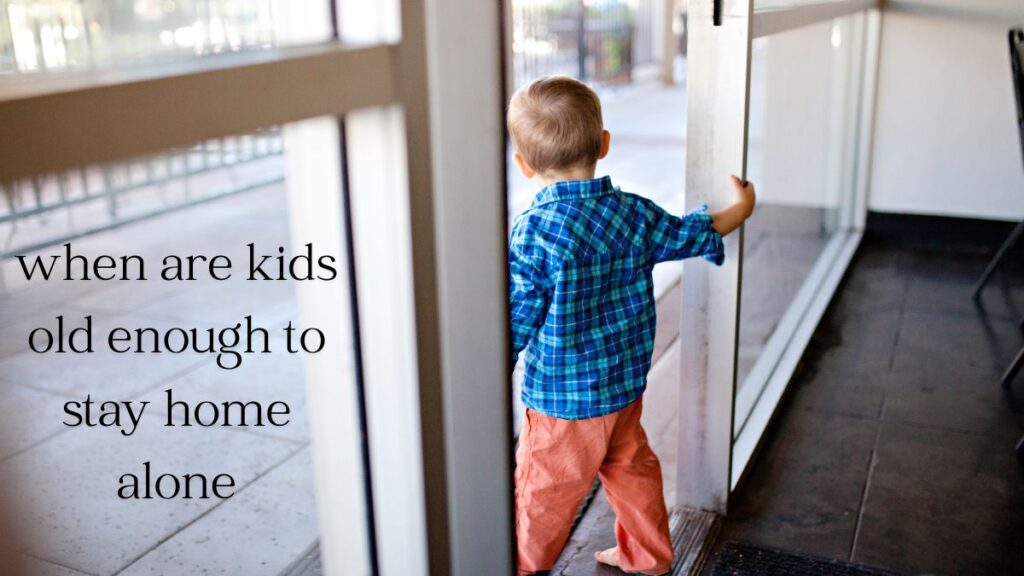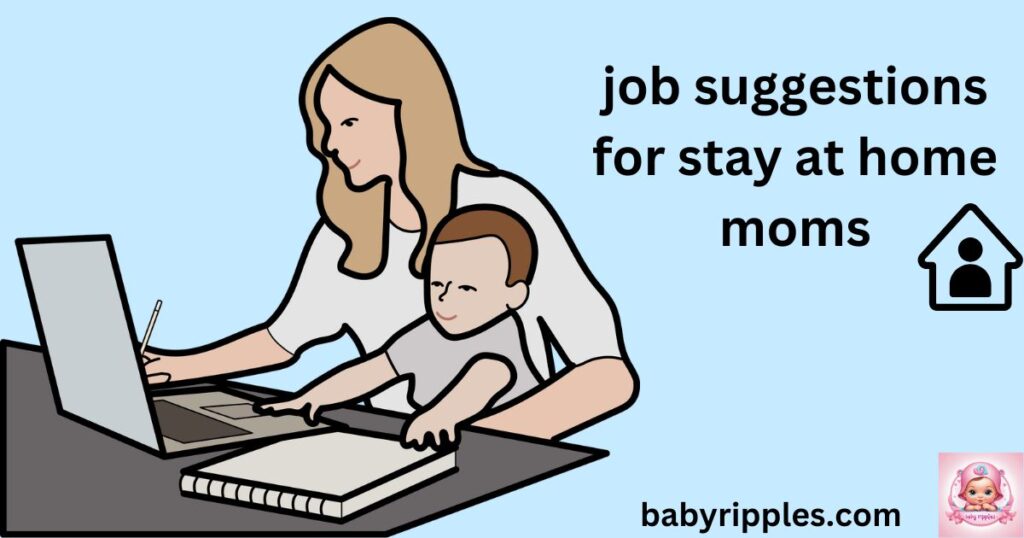As a parent, you’ve definitely wondered when are kids old enough to stay home alone. It’s important to assess your child’s readiness and comprehend the legal requirements, regardless of whether you’re planning a short errand or a few hours away. Knowing their age is only one aspect of choosing the appropriate moment; other factors include making sure they are safe and boosting their self-esteem so they can manage independence.
This guide will help you navigate the decision by addressing age factors, maturity, safety, and preparation. Let’s explore how to make this transition smooth and stress-free.
You may want to read: Good Pets for 7 Year Olds
- Factors to Consider Before Leaving Your Child Alone
- Preparing Your Child to Stay Home Alone
- Legal Age to Leave Kids Home Alone: State-by-State Guide
- State-by-State Legal Age Guide
- Signs Your Child Is Ready to Stay Home Alone
- Recommended Products to Make Staying Home Alone Safer
- Alternatives to Leaving Kids Alone Too Soon
- Next Steps: Building Independence Gradually
- FAQs About when are kids old enough to stay home alone
Factors to Consider Before Leaving Your Child Alone

1. Age Isn’t Everything
While many parents ask, at what age can a child stay home alone, age is just a number. Assess your child’s:
- Decision-making skills.
- Ability to stay calm in unexpected situations.
- Understanding of basic safety rules.
2. Maturity and Confidence
Evaluate your child’s sense of responsibility. Can they follow rules without supervision? Do they feel confident staying alone?
3. Duration Matters
Start small. Leave your child alone for 10–15 minutes while you take a short walk. Gradually increase the time as they gain confidence.
4. Neighborhood Safety
Is your home in a safe area? If your neighborhood is quiet and secure, you’ll feel more confident about leaving your child alone.
Preparing Your Child to Stay Home Alone

To ensure your child is ready for independence, follow these steps:
1. Practice Emergency Preparedness
Teach your child how to handle emergencies. This includes:
- Dialing 911.
- Knowing their address and phone numbers.
- Identifying trusted neighbors they can contact for help.
2. Create House Rules
Before leaving, establish clear guidelines. For example:
- Don’t answer the door for strangers.
- Keep the doors locked at all times.
- Avoid using the stove or oven.
3. Role-Play Scenarios
Simulate real-life situations to test their decision-making skills. For instance, ask, “What would you do if the power went out?”
4. Set Up Check-Ins
Ask your child to check in with you regularly via phone or text. This builds trust and keeps communication open.
Legal Age to Leave Kids Home Alone: State-by-State Guide
Laws about leaving kids home alone vary widely across states. While some states have established a legal age to leave kids home alone, others provide only general guidelines or leave it to parental discretion. Below is a detailed table covering the legal requirements or recommendations across 50 U.S. states to help parents make informed decisions.
State-by-State Legal Age Guide
| State | Legal Age | Additional Notes |
| Alabama | No specific age | Parental discretion advised. |
| Alaska | No specific age | Recommended minimum: 12 years old. |
| Arizona | No specific age | Guidelines suggest a minimum of 10 years. |
| Arkansas | No specific age | Recommend waiting until the child is 10 or older. |
| California | No specific age | Parents should evaluate the child’s maturity and neighborhood safety. |
| Colorado | 12 years old | Children under 12 are considered too young to stay home alone. |
| Connecticut | No specific age | Parents are responsible for assessing readiness. |
| Delaware | 12 years old | It’s illegal to leave a child younger than 12 unsupervised for extended periods. |
| Florida | No specific age | Guidelines recommend waiting until the child is at least 12. |
| Georgia | 9 years old | The minimum age is 9; children 8 or younger cannot be left home alone. |
| Hawaii | No specific age | Parental discretion based on child maturity. |
| Idaho | No specific age | General recommendation: children should be 10 or older. |
| Illinois | 14 years old | Strict law; leaving children younger than 14 home alone is considered neglect. |
| Indiana | No specific age | Suggested age: 12 years old. |
| Iowa | No specific age | Parental judgment required. |
| Kansas | 6 years old | One of the lowest minimum ages; children under 6 cannot be left alone. |
| Kentucky | No specific age | Parents must evaluate child readiness. |
| Louisiana | 10 years old | Legal minimum is 10 for leaving a child unsupervised. |
| Maine | No specific age | Parental discretion encouraged. |
| Maryland | 8 years old | Children under 8 must have supervision at all times. |
| Massachusetts | No specific age | Guidelines suggest a minimum age of 10. |
| Michigan | No specific age | Local recommendations suggest 10 to 12 years old. |
| Minnesota | 8 years old | It’s illegal to leave children under 8 home alone. |
| Mississippi | 12 years old | Recommended minimum for short periods. |
| Missouri | No specific age | Parental responsibility emphasized. |
| Montana | No specific age | Suggested age: 12 years old. |
| Nebraska | 6 years old | One of the youngest legal minimum ages. |
| Nevada | No specific age | Parental discretion advised. |
| New Hampshire | No specific age | Recommendations suggest 10 to 12 years. |
| New Jersey | No specific age | Parents must assess readiness and ensure safety. |
| New Mexico | 10 years old | It’s illegal to leave children under 10 unsupervised. |
| New York | No specific age | Parental discretion based on maturity and neighborhood safety. |
| North Carolina | 8 years old | Children younger than 8 cannot legally be left alone. |
| North Dakota | 9 years old | Minimum age for being left home alone is 9. |
| Ohio | No specific age | Suggested age: 10 to 12 years old. |
| Oklahoma | 10 years old | Legal minimum is 10 for being left alone. |
| Oregon | 10 years old | Children under 10 must not be left unsupervised. |
| Pennsylvania | No specific age | Parental judgment required. |
| Rhode Island | No specific age | Recommendations suggest children be at least 12 years old. |
| South Carolina | No specific age | Parental discretion based on the child’s maturity. |
| South Dakota | No specific age | Suggested minimum is 10 to 12 years. |
| Tennessee | 10 years old | Legal minimum is 10 years old for being left unsupervised. |
| Texas | No specific age | Guidelines recommend waiting until age 12. |
| Utah | No specific age | Parents should assess readiness. |
| Vermont | No specific age | No official law; maturity and safety are key. |
| Virginia | No specific age | Suggested minimum: 12 years old. |
| Washington | No specific age | Parental discretion is the deciding factor. |
| West Virginia | No specific age | Recommendations encourage waiting until age 12. |
| Wisconsin | No specific age | Parental judgment strongly emphasized. |
| Wyoming | No specific age | Parental discretion is advised. |
Signs Your Child Is Ready to Stay Home Alone

Wondering at what age can a child be left home alone? Look for these signs of readiness:
- They can prepare simple snacks or meals independently.
- They know how to lock doors and windows.
- They feel comfortable and confident about being home alone.
- They consistently follow instructions and house rules.
Recommended Products to Make Staying Home Alone Safer
To ensure your child’s safety and your peace of mind, consider these helpful products:
- Smart Home Cameras
Monitor your home remotely with a smart camera system.
- Emergency Contact Cards
Keep a list of emergency numbers handy for your child.
- Child-Friendly Mobile Phones
Equip your child with a simple phone for communication.
- First Aid Kits
Ensure your child knows where the kit is and how to use it.
These tools not only enhance safety but also boost your confidence in leaving your child home alone.
Alternatives to Leaving Kids Alone Too Soon
If your child isn’t ready for complete independence, try these alternatives:
- Hire a babysitter or ask a trusted neighbor to check in.
- Enroll your child in an after-school program or activity.
- Arrange playdates with friends.
Next Steps: Building Independence Gradually
Leaving your child home alone is a big step. Start small by staying nearby for short periods. Gradually increase the duration as they gain confidence. Most importantly, communicate openly about their feelings and experiences.
By preparing them step by step, you’ll help them embrace independence while ensuring their safety.
FAQs About when are kids old enough to stay home alone
1. How old can you start letting kids stay home alone?
Experts recommend around 11 to 12 years old, depending on the child’s maturity and local laws.
2. At what age can a child stay home alone in Maryland?
In Maryland, the minimum age is 8 years old.
3. What’s the legal age to leave kids home alone in Illinois?
In Illinois, children must be at least 14 years old.
4. What age can a child be left home alone overnight?
Overnight stays require a higher level of maturity, often recommended for teens 16 or older.
5. How do I know if my child is ready to stay home alone?
Look for signs like following rules, handling emergencies, and expressing confidence about being alone.





